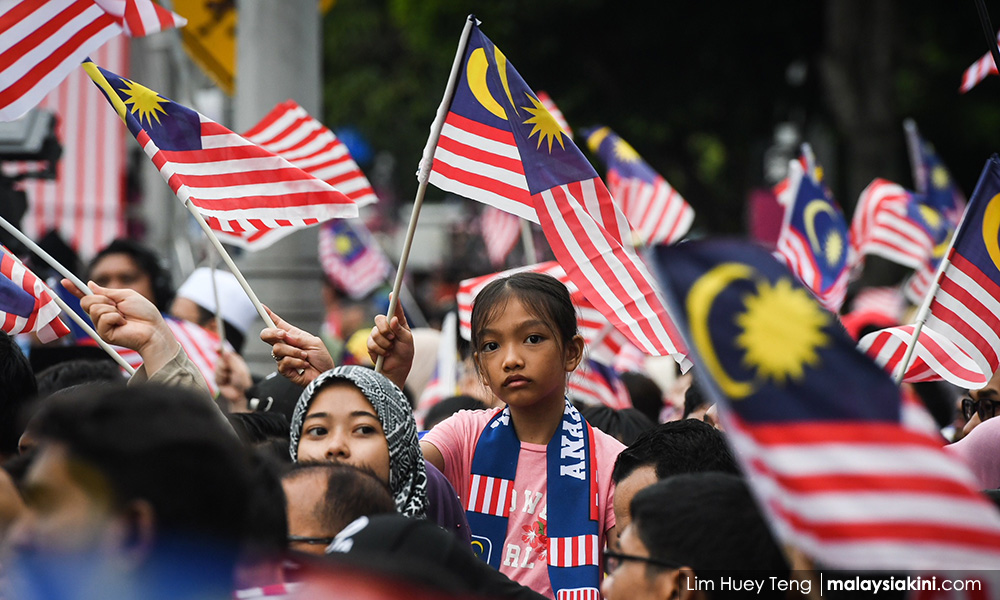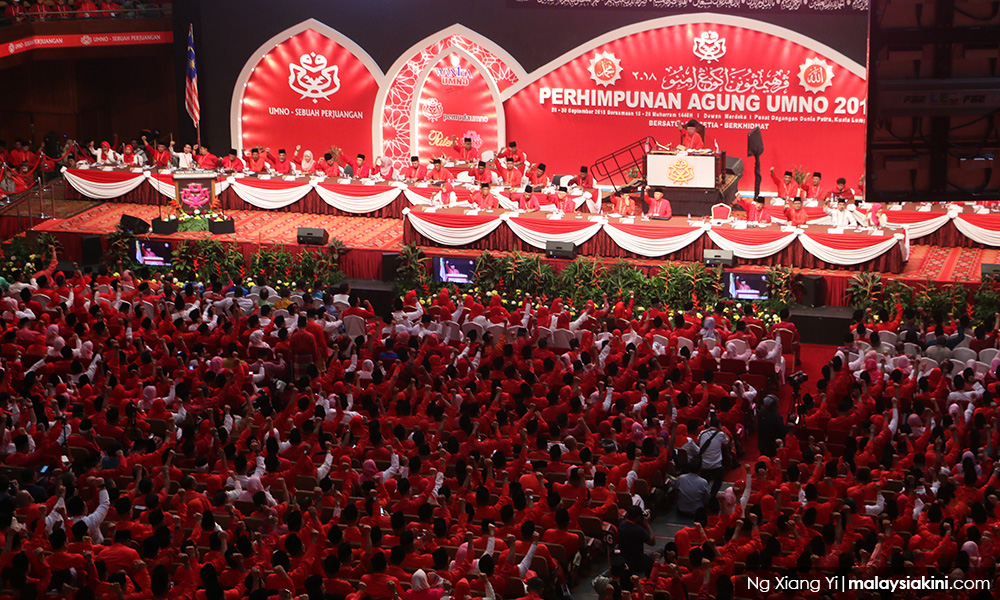COMMENT | During the monthly assembly of the Prime Minister’s Department yesterday (Jan 14), Prime Minister Dr Mahathir Mohamad emphasised the importance of equal wealth distribution among all races as a prerequisite to the country’s long term political stability. He said:
"It has become our duty to determine that we distribute the wealth equally or at least to a level accepted by all the communities in the country. If we cannot achieve equality in status, comfort, and peaceful life and prosperity for all races, then we cannot be seen as successful in building the nation."
I presume, from Mahathir’s past statements on this subject, that he is referring to the wealth disparity between Malays and Chinese, and that such a gap must be bridged to avoid potential racial strife.
I would like to engage the honourable prime minister on the subject of wealth distribution in this discourse.
Elusive equal sharing of wealth
The first truism we must recognise on this subject is that wealth being distributed equally is a pipe dream in any society or country since the dawn of civilisation.
The nearest men have achieved towards this ideal is through the Marxist communist states, which have now become extinct. And even in such a society, there was vast disparity in income and material comfort between higher communist party hierarchy and the common people, irrespective of their professions and nature of work.
The next nearest to such an ideal society of equal sharing of wealth is the socialist states or the social welfare states. These societies are typically represented by the northern European states such as Sweden, Finland, etc, where the high taxes would make Malaysians shudder. Despite their high taxes and relatively equitable distribution of wealth and comfort, they have also produced many world renown billionaires through their advance technological know-how and innovations.

Malaysia, like most countries in the world, has adopted free enterprise and capitalism as its economic system, where the economy thrives through personal initiative and enterprise, which inevitably result in vast disparity of wealth and standard of living among its populace.
Root cause of disparity of wealth
The main reason of such disparity is due to the different earning capacities of individuals. The more capable and more enterprising would earn more – as simple as that.
In Malaysia, Malays are generally not as well off as the Chinese.
This is mainly attributable to the difference in culture and tradition.

Having suffered abject poverty for many generations in their motherland, the pioneer overseas Chinese were attuned to working extra-hard and living extremely thrifty lives in order to survive in a new environment. It is this tradition, and the top priority being given to education as the golden means to achieve success, that has enabled the overseas Chinese to eventually prosper wherever they settled down.
On the other hand, Malays have lived in a land of good climate and abundant natural resources where they could lead a comfortable life without having to engage in fierce competition. And their devotion to their religion would mean that they allocate more time to spiritual pursuits and down-scale the pursuit of material wealth.
However, following the advance of education, technology and the professions in the past decades, the current scenario is a vastly different story.
Unlike the early days of Independence, there are now more Malay professionals than the Chinese. Perhaps more Malay millionaires as well. The entire government is staffed almost completely by Malays. So are the public universities and colleges which are populated overwhelmingly by Malay students.
What is lagging among the Malay populace is the relative poverty of the Malay peasantry and their relatively low presence in the medium-scale industries and businesses.
True remedy
The remedy for that is education and training. We need radical reforms that will allow the pursuit of excellence and innovation to shine through as the hallmark of our education system. For which we desperately need to discard race and religion-inspired policies that have brought pervasive mediocrity not only to our education system, but also to our entire government machinery.
A legitimate question at this junction is: why has the Umno government failed to uplift the Malay quality of life as desired, despite the billions after billions that have been spent exclusively for this purpose through myriads of racial privilege agenda in the past decades?

The answer is Umno’s massive abuse of power and endemic corruption, and above all, the practice of unrestrained and pervasive racial privileges and racial discrimination. While the former has given rise to rampant corruption, the latter has obliterated the concept of meritocracy, thus breeding mediocrity across the full spectrum of Malaysian life. The end sufferers of such racial policy are mainly the Malays, besides causing a massive brain drain among the non-Malays, which has grievously deprived the country of much-needed talents.
Racism a failed formula
Racial discrimination is untenable in any modern society and morally unacceptable to all religions. It has proven, in the case of Malaysia, that it has degraded public life, retarded economic growth and hindered the progress of the racial group for which it is supposed to benefit.
Affirmative action policy for the underprivileged, yes. But race-based affirmative action policy as a birthright, no. The latter is a transgression of the founding precept of this nation – that all citizens are equal under Malaysian law, as clearly spelt out in the Federal Constitution.
How much will the Malays lose anyway, if aid to the needy is not confined to the Malays, but include other races, considering that Malays form the overwhelming majority of this have-not group? Malays will definitely receive the lion’s share of such benefits.
Malay interests will still be safeguarded by continuing the help rendered to current institutions like Felda and Mara, but this time, with a specific plan geared towards self-sustenance. New institutions may even be created to effectively promote Malay entrepreneurship in the medium-scale industries and businesses.
Racism-free Malaysia our only viable future
With a truly reformed education system free of the baggage of racism and designed to produce upright citizens competent to cope with the challenges of this technological age, I don’t see why Malays will not be the biggest beneficiaries of such reforms.
At the end of the day, the removal of institutionalised racist policies will enhance immeasurably nation-building in the form of genuine national unity and harmony, higher quality of human performance in all fields, all of which will, in turn, make Malaysia a stronger and more prosperous nation.
While this is the desire of the majority who had voted Pakatan Harapan to power, one of its component parties has apparently stuck to Umno’s racist ideology - as exemplified by Prime Minister Mahathir’s speech, as stated above - which seems to be obsessed with the elusive pursuit of equal sharing of wealth, but indifferent to the all-important quest to create wealth.
The fall of Umno has presented us the first opportunity in generations to make a new and better life for all Malaysians, free of the albatross of racism and corruption.
Can we free ourselves from the bondage of the past and strike anew or are we slowly creeping backwards to seek the familiar comfort of yore, however depraved that may be?
Quo vadis, Pakatan Harapan: a new dawn or back to the decadent past?
KIM QUEK is the author of the banned book “The March to Putrajaya”, and the bestseller, “Where to, Malaysia?”
The views expressed here are those of the author/contributor and do not necessarily represent the views of Malaysiakini.

